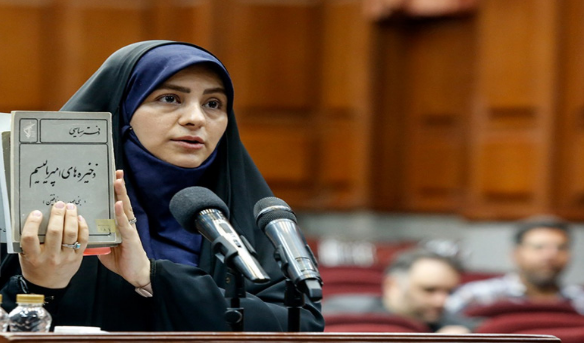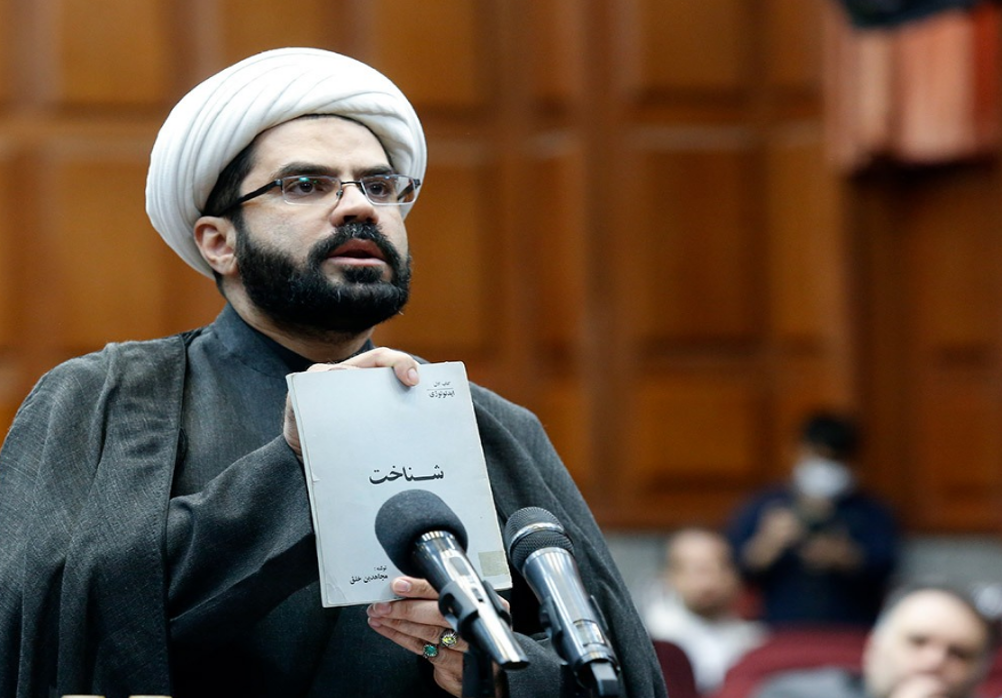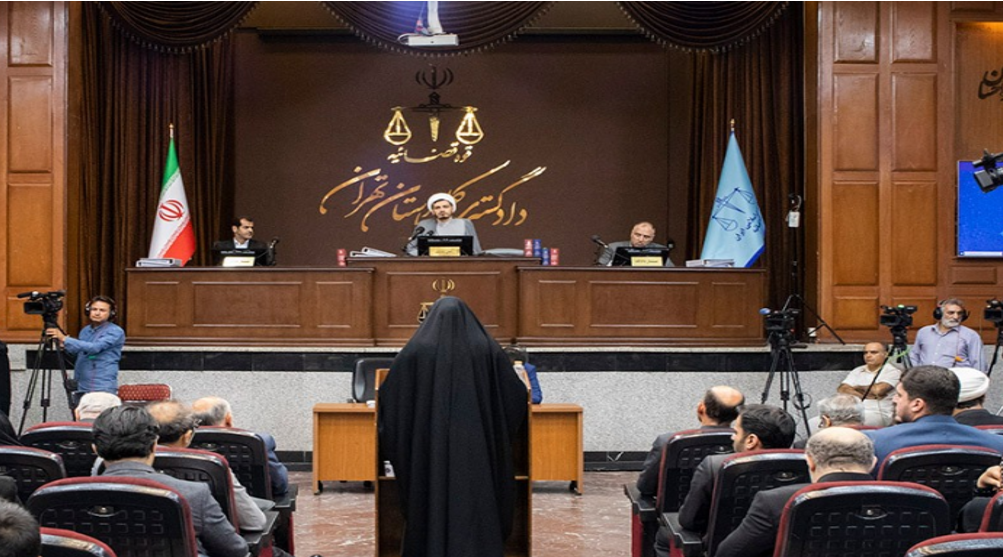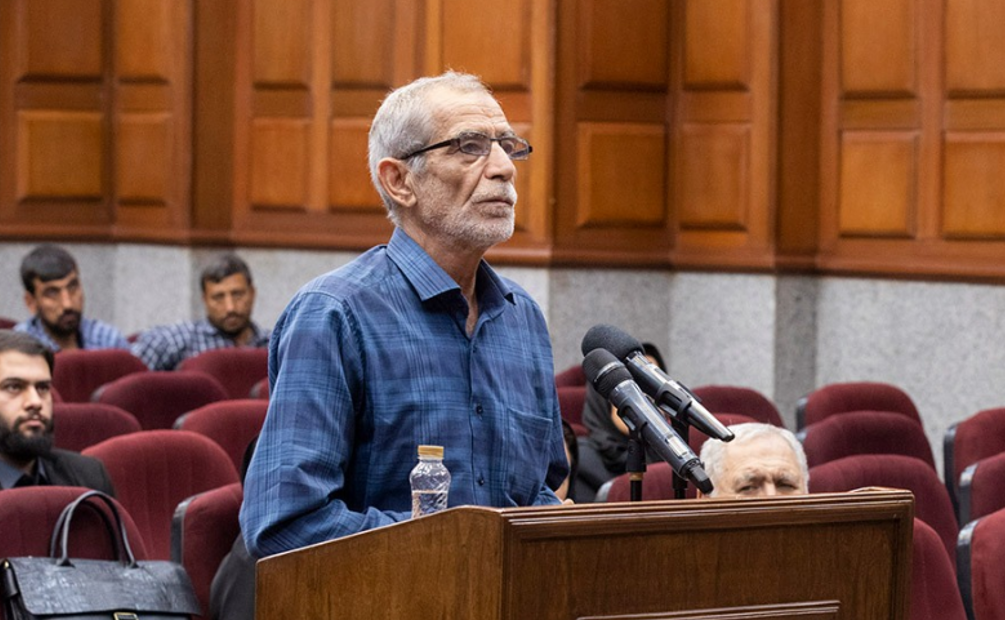HCHR_The Islamic Republic of Iran has been among the primary victims of terrorism and a breeding ground for both domestic and foreign terrorist groups since the inception of the Islamic Revolution in 1979. Throughout this period, thousands of innocent individuals have been martyred or severely injured as a result. Terrorist organizations have aimed their attacks at all segments of society, indiscriminately affecting men, women, children, the elderly, and even scientists.
Most notably, the bulk of assassinations, constituting clear instances of crimes against humanity, have been perpetrated by a nefarious terrorist group known as the Monafeqeen Terrorist Organization, or the so-called People’s Mojahedin terrorist organization, within Iran. Since the outset of the Islamic Revolution, this terrorist group initiated a retaliatory campaign by executing explosions in densely populated urban centers, assassinating governmental officials, launching armed assaults, employing firearms and knives against civilians, as well as engaging in kidnappings, torture, and acts of betrayal against the nation. These criminal and terrorist actions, including espionage in favor of Saddam’s Baath regime, tragically led to the martyrdom of nearly 17,000 individuals at the hands of this terrorist group’s agents.

The primary objective and operational foundation of the Monafeqeen terrorist group are notably centered on assassinating and eliminating individuals who oppose or dissociate from their ideology. This intent is distinctly evident in their published documents and statements. However, the most egregious and blatant violation of human rights manifests in the ruthless killing of innocent civilians, primarily through bombing civilian gathering places. In 1981, agents affiliated with this terrorist group endeavored to assassinate numerous high-ranking officials in Iran, including the President, Prime Minister, Chief of the Judiciary, ministers, parliament members, clerics, and a multitude of Iranian citizens. Subsequent to targeting the nation’s leaders in 1981, the Monafeqeen terrorists shifted their focus to massacring innocent civilians. Between 1982 and 1988 alone, their criminal and terrorist actions resulted in the martyrdom of over 17,000 documented individuals. Among the manifold transgressions of this terrorist group are acts of treason and espionage, notably collaborating with adversarial governments. During the Baath regime’s invasion of Iran, this terrorist group actively transmitted various intelligence, including the locations of citizens’ gatherings, 4 facilitating the barrage of missile attacks being conducted against Iran.
Innocent civilians from neighboring nations, notably Iraq and Syria, have also borne witness to the atrocities committed by this terrorist group. Operating in conjunction with the Saddam regime after establishing a base in Iraq, those aligned with the Monafeqeen Terrorist Organization perpetrated extensive crimes against various ethnic terrorist groups within the country, notably targeting Shia and Kurdish populations. One harrowing instance, the Anfal campaign (Kurdish genocide) spanning from February to September 1988 across Kirkuk, Diyala, Nineveh, and Salahuddin provinces, resulted in the destruction of a significant number of villages. In collaboration with the Monafeqeen terrorists, more than 182,000 defenseless individuals fell victim to brutal executions, including being buried alive, beheadings, mass shootings, and burning. The Judiciary of Iraq has initiated legal proceedings against the Monafeqeen terrorists and has subsequently issued arrest warrants for 118 of its principal operatives. Subsequent to the inception of terrorist undertakings within Syria and Iraq from the year 2011 onwards, this particular terrorist group, in collaboration with other individuals identified as terrorists within Syria, has engaged in large-scale homicides targeting the Syrian people. Concurrently, while providing training for different terrorist cohorts, they have perpetrated widespread crimes within this geographical area.
The European Parliament’s resolution of July 13, 2023, titled “Recommendations to amend the European Parliament’s provisions on transparency, honesty, accountability, and the fight against corruption,” unveils the deceptive practices of this 7 Tribunal to Probe Accusations Faced by Monafeqeen Terrorist Organization terrorist group, particularly in exploiting political figures and misrepresenting affiliations. The resolution explicitly exposes the Monafeqeen terrorists as a terrorist organization accused of intimidation, torture, and murder of members within the Iranian diaspora. It delineates the terrorist group’s use of aggressive and deceitful methods to engage with European Parliament representatives, including concealing their true association. The resolution highlights manipulative tactics such as falsely attributing European Parliament members’ names to letters they did not endorse or as co-hosts of conferences they never supported. Additionally, the terrorist group employed 45 fabricated titles to mislead European Parliament members, actions explicitly detailed within the resolution.
Moreover, it remains pertinent to note that the Monafeqeen terrorists persist in maintaining their terrorist activities, as evidenced by recent arrests of certain members engaged in terrorist acts, thereby subjecting them to legal proceedings.
Commencement of Judicial Probe into Monafeqeen Terrorist Organization & Principal Active Members
On 9 July 2023, the Tehran Prosecutor’s Office, situated in the Iranian capital, forwarded a comprehensive 729-page indictment, comprising 6757 pages of written evidence alongside 1000 hours of audio and video documentation, to the Tehran Justice Department. This dossier was allocated to Criminal Court 1 of Tehran, where a panel of three judges, consisting of a presiding judge and two advisors, was assigned to preside over the case. Subsequently, the inaugural court session, conducted in adherence to legal protocols, convened publicly on 3 December 2023.

13th Court Session to Probe into Monafeqeen Terrorist Organization & Active Members
The ninth judicial session concerning the case of the Monafeqeen terrorist group and its principal members convened on 28 May 2024. Present at this hearing were legal representatives, families of victims, investigating judges, and the prosecutor’s delegate. At the beginning of this session, the presiding judge stated: “With the completion of the reading of the indictment, the court is now hearing the complaints of the plaintiffs through their attorneys. Charges have been brought against a terrorist organization in the form of an indictment, fundamentally accusing it of harming the Islamic Revolution. The objectives of Interpol include creating public security worldwide, combating terrorism, pursuing criminals, and extraditing them,” he said.
“This court, in accordance with legal regulations, has issued a red notice for the accused. Today, I announce to all countries hosting the suspects in this case that these individuals are under pursuit by Interpol. Issuing identification documents, providing identity verification, or facilitating visas for the suspects in this case by the host governments is against Interpol’s regulations; therefore, we notify all countries that have accepted Interpol’s regulations to cooperate with Interpol and take action to ensure the security of their people.”
Next, Mrs. Moradi, one of the plaintiffs’ attorneys, took the stand to present her statements and defenses. The key points raised by her are as follows:
“I thank the Judiciary for providing the opportunity to address the crimes of the terrorist group known as the Monafeqeen; crimes that have been committed against 17,000 Iranians, necessitating the formation of 17,000 courts and the issuance of 17,000 verdicts. The court must examine each case in detail. The entire world is witnessing the sessions of this court. Today, I want to speak about the ISIS-like massacres carried out by the Monafeqeen. These massacres have legal, political, and ideological roots. Today, books have been presented to the court, containing significant documents of the confessions made by the members of the so-called People’s Mujahedin Organization of Iran regarding the crimes they have committed. Among these books are the publication ‘Mujahed’ and the book ‘Imperialism’s Reserves.’ All these books are published by the so-called People’s Mujahedin Organization. In exchange for their collaboration with Saddam’s regime, the Monafeqeen received large sums of money and oil, and in return, they committed atrocities against 11 Tribunal to Probe Accusations Faced by Monafeqeen Terrorist Organization Iranian warriors, with related films existing as evidence.
The organization that calls itself the so-called People’s Mujahedin is, in fact, a terrorist organization, and terrorist groups are despised in international communities. Even Western countries and the United States have enacted laws to combat terrorism. It seems necessary to elucidate the terrorist nature of this group and to highlight that, based on their theoretical foundations, stances, actions, and criminal activities, they constitute a criminal terrorist group. There are numerous instances of crimes and terrorist activities carried out by the members of this group, and the group has accepted responsibility for these in their publication ‘Mujahed.’

Defense by the Lawyer of the Monafeqeen
Continuing the court session, Mohammadi, the defense attorney for the accused, took the stand and stated in defense of his clients: “From the very beginning of the reading of the indictment, topics outside the scope of the indictment have been raised concerning the accused. In the previous session, one of the experts referred to my clients as heretics. However, my clients at least outwardly accept Islam. In the past few sessions, the plaintiffs’ attorneys have spoken, but they have not specified which specific charges they are addressing.”

Maryam Rajavi Explicitly States: “We and ISIS Share a Common Truth”
In the continuation of the court session, Hojatoleslam Sedaghat, a scholar of ideological issues, took the stand with the judge’s permission. The key points he raised are as follows: “We observe an abnormal level of violence in the actions of the members of the so-called People’s Mujahedin Organization. This organization has exhibited behavior and actions at various times that display violence, and we need to examine the source of this violence. The book ‘Shenakht’ (Knowledge) is the organization’s primary ideological text; it is a collection of Masoud Rajavi’s speeches at the University of Tehran after the revolution’s victory.
Every member of the organization was required to read this book. It asserts that the God they believe in is a materialistic God. We analyze their ideological foundations based on their own texts. The actions of this group can only be compared to those of ISIS. Members of this organization skin a human being and butcher them in the most brutal manner, calling this act’ engineering.’ They refer to the torture unit as the ‘engineering unit;’ just as SAVAK had a special torture unit, they too had a unit named Tribunal to Probe Accusations Faced by Monafeqeen Terrorist Organization 14 ‘engineering.’ Some individuals were killed for being religious or having beards. Seventeen thousand people have been killed, and with Saddam’s help, they have killed hundreds of thousands more in Iraq. The worldview of this group is a materialistic one. The ethical foundation of materialism is profit-driven and self�interested, with no inherent respect for human dignity.
The Monafeqeen did not even spare their leaders like Sharif Vaqefi, whom they brutally killed, burned, and dismembered. The most savage group that has emerged in the world in recent years is ISIS, and Maryam Rajavi explicitly states that ‘we and ISIS share a common truth.’”

14th Judicial Session on the Case of the Monafeqeen Terrorist Group and Its Key Members
The fourteenth court session was held publicly on 12 June 2024, attended by lawyers, a group of victims’ families, the presiding judges, the representative of the prosecutor, and other relevant parties. Mrs. Moradi, one of the plaintiffs’ attorneys, took the stand to present her statements and defenses.
The key points she raised are as follows: “As the attorney for the plaintiffs and the families of the martyrs, it is essential for me to file a complaint. The families of the martyrs have three demands: first, compensation for damages; second, blood money (diya); and third, compensation for the harm and losses resulting from the crimes committed 19 against them. The indictment issued includes charges related to the terrorist activities and crimes of the so-called People’s Mujahedin Organization, known as the Monafeqeen terrorist group. Over 17,000 people have been martyred by this group, and the indictment lists the names of about 600 martyrs. We request that the names of all martyrs be added to the indictment and that verdicts be issued for them as well.
The so-called People’s Mujahedin Organization, as a legal entity, has committed crimes and is facing accusations. A true ‘Mujahed of the people’ is someone who fights for the people, not someone who hijacks airplanes, attacks and bombs cultural places and universities, or kills innocent children and individuals under the pretext of opposing the regime and the government. One of the organization’s general policies has been that all operations be armed and violent, which can be observed in all the crimes and operations they have carried out. The crimes committed by this group are ongoing and continue to pose a significant threat to both the internal and external security of the country. During the eight-year imposed war, this group collaborated with Saddam Hussein and acted against Iranian prisoners in Iraq for their own benefit. This group has spared no effort in collaborating with foreign governments against Iran. My clients firmly demand the harshest punishment for the accused.

Request for Retribution-in-Kind Against the Leaders and Members of the Monafeqeen
Following this, Zahra Farshi Moghadam, the daughter of the martyred Farshi Moghadam, took the stand. The key points she raised are as follows:
“My father was martyred by the Monafeqeen in mid-January 1982 at his nut shop on North Amirabad Street. We have documents and evidence showing that my father was assassinated by this group. My father was not a member of the Islamic Revolutionary Guard Corps; he was a religious and devout revolutionary who displayed pictures of Imam Khomeini at home and work. After the Haft-e Tir1 bombing, this group sent threatening letters to my father and pursued us. According to witnesses, on January 5th at 2 PM, they entered my father’s shop with premeditated intent and shot him. They then threatened us—my mother, my only brother, my three-year-old sister, my father’s apprentice, and me. In one issue of the publication ‘Union of Muslim Student Associations Abroad,’ which is associated with the Mujahedin, they proudly printed the news of my father’s martyrdom. The 1. On 28 June 1981 (7 Tir 1360 in the Iranian calendar; Persian: ,Haft-e Tir), a powerful bomb went off at the headquarters of the Islamic Republican Party (IRP) in Tehran, while a meeting of party leaders was in progress.
Seventy-four leading officials of the Islamic Republic of Iran were martyred. Tribunal to Probe Accusations Faced by Monafeqeen Terrorist Organization 22 threats continued, with them telling my mother they would kill her like they did her husband. We lived in constant fear and anxiety, so much so that my mother fell ill from the stress. What defense can erase the childhood filled with fear and dread from our minds? What defense can replace the support and protection we lost? I ask the court to expedite the handling of this case. At that time, we filed a complaint regarding this issue. The main assailant of my father was Abbas Sahraei, and the other four suspects fled. The main assailant was executed, and I remember the day when five people were tried, including the person who shot my father; I was five years old then. We ask the court not to let the leaders of this organization die a natural death and request retribution-in-kind (qisas).
The Islamic Republic of Iran is the Largest Victim of Terrorism, Yet It Does Not Invade Other Countries
Continuing the session, Hojatoleslam Dehghani, the presiding judge, made the following key points:
“Today, the people of Iran and the world will observe and verify whether a country whose president claims to declare war on terrorism can host individuals accused of crimes against humanity through terrorist actions. A country cannot declare war on terrorism while hosting those accused of committing terrorist
acts. This court is currently addressing the accusations against members of the so-called People’s Mujahedin Organization of Iran for crimes against humanity through terrorist actions.
As the presiding judge, I announce to the European and American judicial communities that your presidents have declared war on terrorism. In this court, with the right to freely choose a lawyer, which is one of the important hallmarks of justice in the international legal system, we are addressing the charges against individuals accused of crimes against humanity through terrorist actions. If the judicial systems of European and American governments are truly law-abiding, I ask whether the authorities of France, Albania, the United States, and other European countries can hold joint sessions with those for whom international arrest warrants have been issued by various
courts, both in Iran and other countries. In 2004, George Bush, in his speech, declared himself to be at war with terrorism and stated that he was ready for this war without the need for legal justification. In contrast, the Islamic Republic of Iran, based on the issued indictment, is one of the biggest victims of terrorism but does not invade other countries. Instead, it seeks justice within the framework of Iran’s acceptable and legal criminal laws.
After the events of the September 11 attacks in the United States, many countries included combating international terrorism in their laws. Many of the laws of European countries and those hosting the accused in this case are committed to adhering to laws against terrorism. In 2004, the U.S. government used the excuse of the bombing of two buildings to attack other countries in the name of fighting terrorism. Today, as the presiding judge of this court, I declare to the American statesmen that according to the indictment in this court, which primarily claims that the noble people of Iran and the sacred system of the Islamic Tribunal to Probe Accusations Faced by Monafeqeen Terrorist OrganizationRepublic of Iran are victims, if they still adhere to their stated claims, they must refrain from hosting, accompanying, or holding joint sessions with the accused in this case until the court has adjudicated their crimes according to judicial standards.”

Former Member of the Organization Pardoned Through the Mediation of Martyr Ayatollah Raisi
Mortaza Torkaman, a former member of the so-called People’s Mujahedin Organization, continued his testimony in court, stating:
“In 1979, several months after the victory of the Islamic Revolution in Iran, I became acquainted with the so-called People’s Mujahedin Organization through my friends and joined the organization due to their propaganda tactics. They typically attracted young people by arousing emotions, using psychological tricks, and leveraging their organizational experience, presenting slogans like creating a classless monotheistic society and fighting imperialism to attract people. After joining the organization, I became familiar with their ideology. The so-called People’s Mujahedin claimed to be the first group to assassinate an American colonel and always portrayed themselves as anti�imperialists. 30 After the Mujahedin entered the military phase in 1981, when I was a soldier, they forced me to desert and arranged several meetings in the cities of Dorud and Nahavand to test me. After not showing up for the first two meetings, they finally recruited me during the third meeting in Hamedan.
The Mujahedin had a plan called ‘Hunt,’ which stated that they should not only target prominent figures but also anyone who appeared to be associated with Hezbollah. The operation I carried out was part of this plan. We lived in a team house for some time, supported financially by the organization. After a month, the so-called People’s Mujahedin asked us to carry out an operation that involved assassinating a sporting goods store owner. I was given a grenade, and a gunman on a motorcycle accompanied me. I threw the grenade into the store from a five-meter distance, which injured a passerby.
The organization claimed the passerby was only scratched, but later, it was revealed that he had been martyred. Despite knowing the grenade might kill someone, we didn’t consider it wrong, believing it was justified to eliminate a so-called ‘mercenary.’ The so-called People’s Mujahedin believed that the Islamic Republic’s actions were inhumane and served imperialism.
After my arrest, I was sentenced to imprisonment. Even in prison, we maintained the organization’s structure and weren’t allowed to leave it. I stayed connected with other imprisoned members. After six years in prison, I provided information about another operation to the authorities and was retried, receiving a death sentence. At that time, Ayatollah Raisi was the prosecutor in Hamedan. He told my brother to be patient while finding a legal way to change my sentence, expressing a desire to avoid 31 Tribunal to Probe Accusations Faced by Monafeqeen Terrorist Organization carrying out the execution. Ayatollah Raisi sought a legal way to save me. Eventually, by paying blood money (diya), my death sentence was commuted to 20 years in prison, though I served less than this.”
To read the detailed report click here